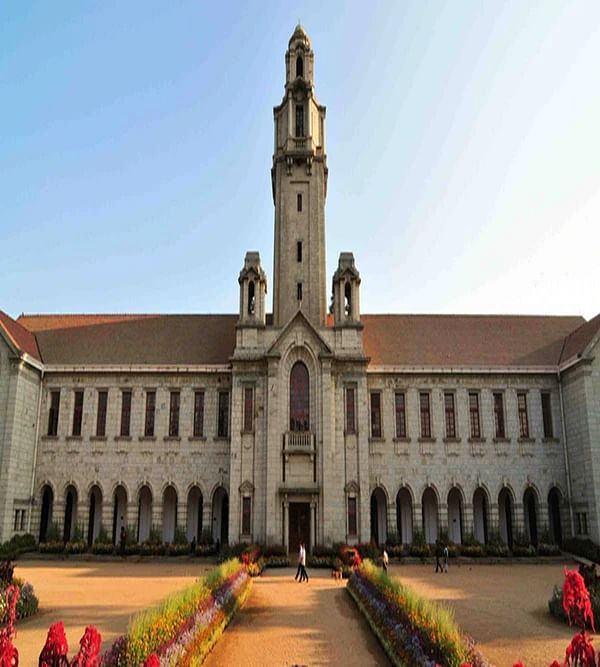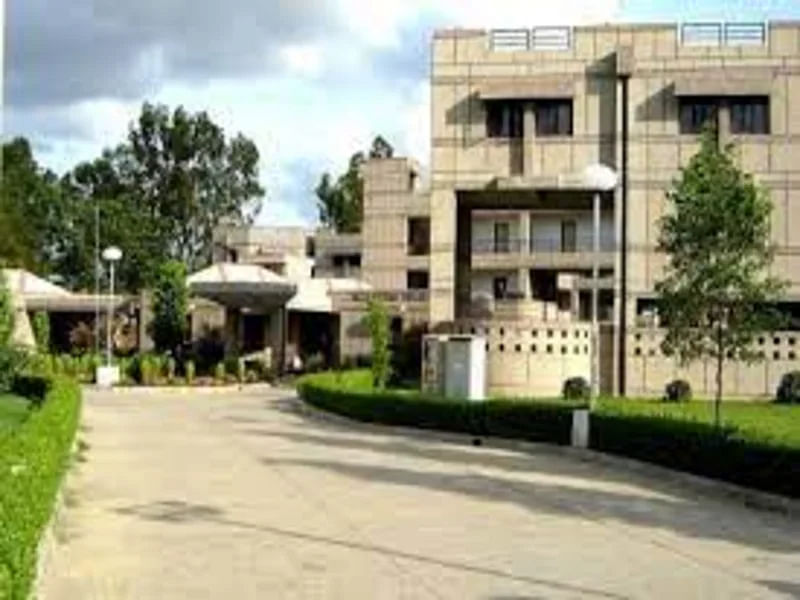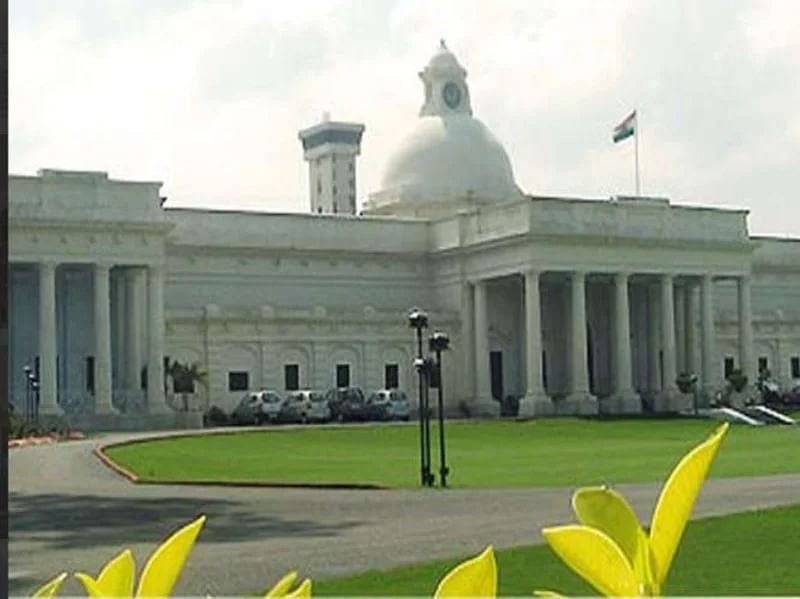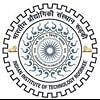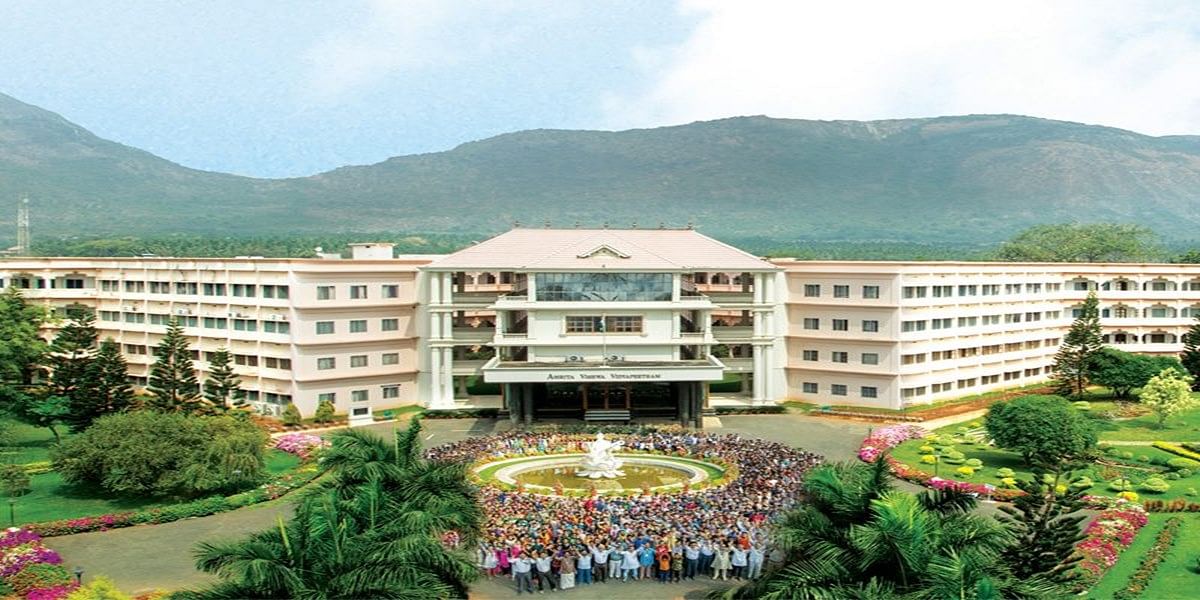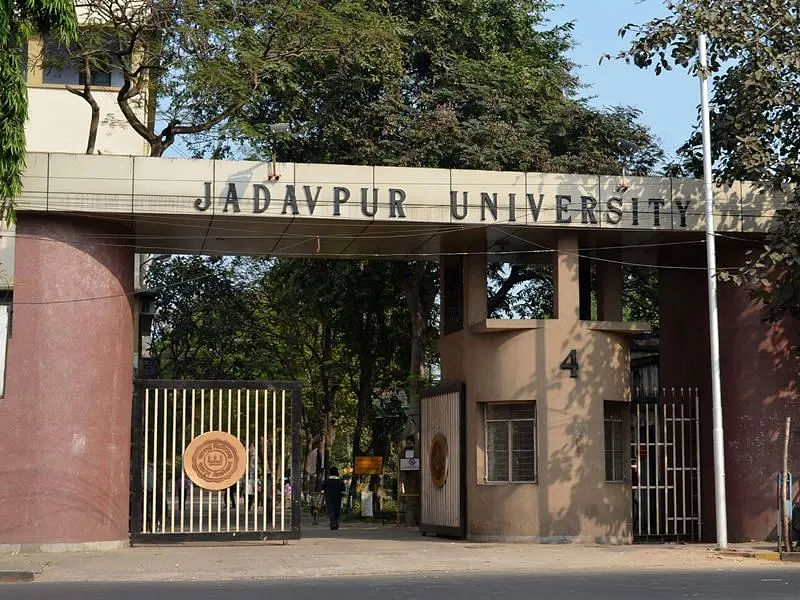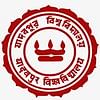BSc Maths Syllabus and Subjects 2026
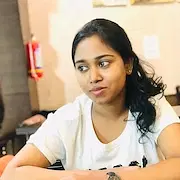
BSc Maths Syllabus is divided into six semesters in three years, covering important subjects like algebra, integral calculus & trigonometry, advanced calculus, and mathematical methods. The BSc Mathematics course places a strong emphasis on the acquisition of fundamental mathematical abilities in algebra, calculus, and data analysis.
BSc Mathematics core subjects include topics such as Calculus, Probability, Statistics, Algebra, etc. Due to the course's numerous potential applications, the BSc Mathematics syllabus offers candidates a wide variety of employment opportunities. Following graduation, students have more job opportunities in fields like computer science and statistics including that of a System Analyst, R&D Specialist, Market Researcher, Statistician, etc.
Table of Content
B.Sc Maths Syllabus Semester Wise
BSc Maths syllabus is a multidisciplinary subject that includes important topics of complex mathematical analysis and scenarios. The subjects have both core subjects that covers the fundamentals of maths and the electives is offered during third or 5th semester focusing on skill-based course.
Below is the tabulated list of BSc Mathematics syllabus according to semester wise system:
BSc Maths 1st Year Syllabus
Listed below are the BSc 1st year Maths syllabus:
|
BSc Maths 1st Semester Syllabus |
BSc Maths 2nd Semester Syllabus |
|
English I |
English II |
|
Calculus |
Analytical Geometry of three dimensions |
|
Alegbra |
Geometry & Vector Calculus |
|
Trignometry |
Calculus–II |
BSc Maths First Year Practical Subjects
Here is a list of the first-year practical subjects for the BSc Maths syllabus:
- Introduction to SciLab / Maxima and commands
- Computation of inverse of a matrix using Cayley – Hamilton theorem
- Tracing of Cartesian curves
BSc Maths 2nd Year Syllabus
Here is a table of the B.Sc Mathematics syllabus for the second year:
|
BSc Maths 3rd Semester Syllabus |
BSc Maths 4th Semester Syllabus |
|
Algebra-II |
Mathematical Analysis |
|
Calculus – II |
Statics & Dynamics |
|
Set Theory and Theory of Equations |
Vector Analysis |
|
Differential Equations |
Riemann Integration and Series of Functions |
|
Computer Graphic (Elective) |
Ring Theory and Linear Algebra I |
BSc Maths Second Year Practical Subjects
Here is a list of the second-year practical subjects for the BSc Maths syllabus:
- Examples on Cauchy’s root test, Raabe’s and Ratio test
- Verification of binary operations
- Verification of Euler’s theorem, its extension and Jacobian
- Numerical methods using C programming
BSc Maths 3rd Year Syllabus
The third-year BSc Mathematics Syllabus deals with subjects such as advanced calculus, numerical methods, human rights and mathematics, etc. Here is a table of the B.Sc Mathematics syllabus for 3rd year:
|
BSc Mathematics 5th Semester Syllabus |
BSc Mathematics 6th Semester Syllabus |
| Real Analysis | Complex Analysis and Ring Theory |
| Elementary Number Theory & Advanced Algebra | Advanced Calculus |
| Complex Analysis | Complex Analysis II |
| Numerical Methods Practical using C | Programming in C Language |
| Human Rights and Mathematics for Environmental Studies (Elective) | Graph Theory and metric spaces |
| Partial Differential Equations and Applications |
Project Work |
BSc Maths Third Year Practical Subjects
Here is a list of the third-year practical subjects for the BSc Maths syllabus:
- Verification of Riemann integrals
- Evaluation of contour integral by Cauchy’s integral formula and plot of the solutions
- Evaluation of contour integral by using the Cauchy Residue theorem
BSc Mathematics Subjects
BSc Maths syllabus involves a study of geometry, trigonometry, calculus, and other theories. The core subjects consist of algebra, advanced calculus, and mathematical methods. The electives offered in BSc Maths include Probability, Game Theory, Mathematical Finance, etc.
Below given are the BSc Maths subjects:
BSc Mathematics Core Subjects:
The BSc Mathematics syllabus has core subjects that provide candidates with an idea of the foundational structure of the course. Below is the list of the core subjects:
- Calculus
- Probability
- Statistics
- Algebra
- Real Analysis
- Communication Skills
- Linear Differential Equations
- Group Theory
- Matrices
- Analytical Geometry
- Fourier Analysis
- Metric Space
- Ring Theory
- Computer Application
- Complex Analysis
- Linear Algebra
- Numerical Methods
BSc Mathematics Elective Subjects:
The elective subjects highlight the important career skills that candidates require to excel in the course and career and can be chosen based on the candidate's area of interest, the scope for higher education, etc. Below is a list of electives offered in BSc Mathematics:
- Analytical Geometry
- Vector Calculus
- Theory of Equations
- Probability and Statistics
- Mathematical Finance
- Boolean Algebra
- Transportation and Game Theory
BSc Maths Subjects in Detail
BSc Maths Subjects focuses on topics such as combinations of continuous functions, concavity, countable and uncountable sets, dot products, etc. Modern mathematical ideas and methods are mostly covered in BSc Maths courses. The various BSc Mathematics subjects covered under each subject are represented in the table below:
| BSc Maths Subjects | Topics Covered |
| Algebra, Trigonometry and Differential Calculus | Tangent and Normals of a Conic (Cartesian and Parametric form), Orthoptic Locus, Chords in terms of given points, Polar Co-ordinates, Polar Equation of a line, Polar Equation of Circle, Polar Equation of Conic, Polar Equations of tangents and Normals, Chords of Conic Sections. |
| Real Analysis | Continuous Functions, Combinations of Continuous Functions, Continuous Functions on Intervals, Uniform Continuity, The Derivative, The Mean Value Theorem, L' Hospital Rules, Taylor's Theorem. |
| Calculus | Expansion of functions using Maclaurin's theorem and Taylor's theorem, Concavity and points of inflexion, Curvature and Evolutes, Length of arc as a function derivative of arc, Partial derivatives, The Chain rule, Extreme values and saddle points, Lagrange multipliers. |
| Set theory and Theory of Equations | Equivalence relations, Partition of a Set, Arbitrary unions and intersections. De Morgan’slaws, Countable and Uncountable sets, Fundamental Theorem of Algebra, Relation between the roots and coefficient of a general polynomial equation in one variable, Synthetic division. |
| Vector Calculus | Dot and cross product of vectors, Ordinary derivatives of vectors, Continuity and differentiability of a vector function, Derivatives of sum, Dot product, Cross product and Triple product of vectors, Constant vector functions, Partial differentiation of vector functions. |
| Infinite Series | Infinite series and examples. Convergent, Divergent and Oscillatory series, Partial sum of series. Series of non-negative terms, Necessary and sufficient condition for convergence, Cauchy’s general principle of convergence. Geometric series. The Pseries(Harmonic), Comparison tests (different forms), D’Alembert’s ratio test, Raabe’s test,. |
| Fourier Transforms | Periodic functions, Fourier series of functions of period 2π and 2l. Fourier series of odd and even functions, half range sine and cosine series |
| Mechanics | Velocities and accelerations in Cartesian, polar, and intrinsic coordinates. Equations of motion refer to a set of rotating axes. Motion of a projectile in a resisting medium. The motion of a particle in a plane under different laws of resistance. |
College-Wise BSc Mathematics Syllabus
The BSc Mathematics syllabus varies from one college to another but the structure and the concepts remains the same. To download a particular college syllabus, students can visit the college official website and download the BSc Maths Syllabus PDF. Given below are the BSc Maths Syllabus from top colleges and universities in India:
Jadavpur University BSc Mathematics Syllabus
The BSc Maths syllabus in Jadavpur University is divided into six semesters with subjects such as Differential Equation, Vector Analysis, Algebra, Probability theory, etc. Given below is the semester-wise syllabus for BSc Maths at Jadavpur University:
|
Semester-I |
Semester-II |
|
Calculus |
Mechanics-I |
|
Geometry |
Differential Equations-I |
|
Algebra-I |
Algebra-II |
|
Semester-III |
Semester-IV |
|
Mechanics-II |
Vector Analysis |
|
Differential Equations-II |
Differential Equations-III |
|
Analysis-I |
Analysis-II |
|
Semester-V |
Semester-VI |
|
Numerical Methods |
Probabbility Theory |
|
Numerical Methods Practicals using C |
Linear Programming and Optimization |
|
Algebra-III |
Algebra-IV |
|
Analysis-III |
Analysis-IV |
|
Optional Paper-I |
Optional Paper-III |
|
Optional Paper-II |
Optional Paper-IV |
Lady Shri Ram College for Women BSc Mathematics Syllabus
BSc Maths Syllabus in Lady Shri Ram college deals with topics such as Differential Equations, Calculus, Algebra,etc through various teaching methods and techniques. Listed below are the semester-wise BSc Maths syllabus:
|
Semester-I |
Semester-II |
|
Calculus |
Real Analysis |
|
Algebra |
Differential Equation |
|
Semester-III |
Semester-IV |
|
Theory of Real Functions |
Partial Differential Equations |
|
Group Theory-I |
Riemann Integration & Series of Functions |
|
Multivariate Calculus |
Ring Theory & Linear Algebra-I |
|
LaTeX and HTML |
Computer Algebra Systems and Related Software |
|
Semester-V |
Semester-VI |
|
Metric Spaces |
Complex Analysis |
|
Group Theory-II |
Ring Theory and Linear Algebra-II |
|
Numerical Analysis |
Mathematical Finance |
|
Mathematical Modeling and Graph Theory |
Introduction to Information Theory and Coding |
|
C++ Programming for Mathematics |
Biomathematics |
|
Probability Theory and Statistics |
Number Theory |
|
Discrete Mathematics |
Linear Programming and Applications |
|
Cryptography and etwork Security |
Mechanics |
BSc Mathematics Course Structure
The BSc Mathematics syllabus combines a thorough understanding of mathematical theories and enriches knowledge through problem-solving, hands-on exercises, seminars, and projects, among other activities. The course structure contains the following details for BSc Mathematics:
- VI semesters
- Seminars
- Practical Learning
- Skill Oriented courses
- Project Submission
BSc Mathematics Teaching Methodology and Techniques
BSc Mathematics syllabus has implications for a wide range of fields, including finance, computer science, physics, chemistry, and biology. Through both conventional and contemporary teaching techniques, candidates receive a comprehensive understanding. There is a list of techniques given below:
- Demonstration
- Synthetic method
- Problem-solving exercises
- Mentorship/ Supervision
BSc Maths Project Topics
The BSc Mathematics project is an assignment that all students must finish by the end of the semester. Students should therefore view their projects as the perfect opportunity to integrate the material they have learned throughout the BSc Mathematics syllabus. The following are some of the trending BSc Maths project topics:
- Computable reducibility of equivalence relations,
- Dynamic sampling versions of popular SPC charts for big data analysis
- Classification of vertex-transitive structures
- Latin squares and their applications to cryptography
- Riemannian geometry with symmetries
- Geometric flows in Hermitian geometry
- Combinatorial and geometric group theory
- Stochastic Differential Geometry: Probabilistic Approaches to Geometric Problems.
BSc Mathematics Reference Books
To gain an in-depth knowledge about the equations laws and other important concepts discussed in the BSc Mathematics syllabus, students can refer to books by experts on various topics related to mathematics. The most popular books for a BSc mathematics course are listed below:
|
BSc Mathematics Books |
Author |
Topics Covered |
|
Basic Abstract Algebra |
Bhattacharya |
The book details algebraic structures, such as groups, rings, fields, modules, vector spaces, and algebras. |
|
Calculus and Analytic Geometry |
GB Thomas and RL Jinney |
Limits and Continuity, Derivatives, Application of Derivatives, Integration |
|
Functional Analysis and Applications |
S. Kesavan |
Normed Linear Spaces, Hanh Banach Theorems, Baire's theorem and applications, Hilbert Spaces, Compact Operators |
|
Contemporary Abstract Algebra |
Joseph A. Gallian |
Introduction to Groups, Cyclic Groups, Permutation Groups, Isomorphism |
|
Calculus |
Single and Multivariable by Hughes and Hallet |
Integrating functions of several variables, Parameterization and vector fields, Line Integrals, Flux Integrals and Divergence |
Top B.Sc Mathematics Colleges
Top Science Entrance Exams
BSc Mathematics Fee Structure
FAQs on BSc Mathematics Syllabus and Subjects
Q: What is the BSc Maths Syllabus?
Q: What is the syllabus of B Sc 1st year mathematics?
Q: Is BSc maths easy to pass?
Q: Is BSc maths tough than Btech?
